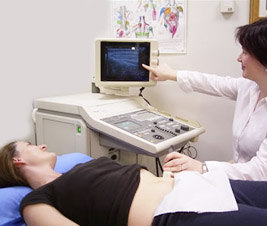Regular health exams and tests can help find problems before they start. They also can help find problems early, when your chances for treatment and cure are better. By getting the right health services, screenings, and treatments, you are taking steps that help your chances for living a longer, healthier life. Which exams and screening you need depends on your age, health and family history, and lifestyle choices such as what you eat, how active you are, and whether you smoke.
What preventive services do women need?
Adult women should have their weight, blood pressure and cholesterol levels checked regularly. They should also have a Pap test at least every 3 years to screen for cervical cancer starting at age 21 or approximately 3 years after they have sex for the first time. After the age of 40, women should have a mammogram every 1 to 2 years to screen for breast cancer. After the age of 50, they should also be tested for colorectal cancer.
Your doctor may give you advice about exercise and diet. As you get close to menopause, your doctor will talk to you about hormone replacement therapy.
What preventive services do men need?
Adult men should have their weight, cholesterol levels and blood pressure checked regularly. Men older than 50 should be tested for colorectal cancer.
Your doctor may talk to you about the importance of diet and exercise, testing for prostate cancer and avoiding alcohol, tobacco, drugs and sexually transmitted infections.
What preventive services do children need?
Shots are one of the most important preventive services for children. Shots protect children from diseases such as polio, measles and mumps. Your doctor will check your child to make sure he or she is growing and developing properly.
Your doctor will tell you what you can do to keep your child's teeth healthy. Your doctor may also give you advice about how to keep your child safe from accidents and injuries (for example, using car seats and seat belts and keeping your child away from poisons and electric outlets)
Your doctor will also talk to you about teaching your child healthy eating habits and exercise habits.
General Preparation
• You will need to fast overnight (in order to do your fasting cholesterol & glucose levels):
1. NO FOOD from 9-10pm the night before the health screening; you may however drink plain water.
2. NO BREAKFAST on the actual morning - except plain water once again.
3. If you are on any prescribed medication, please continue your medication as directed by your doctor.
4. If you have diabetes, remember to OMIT your diabetes medication (if any) on the morning of your health screening.
5. Please remember to bring along your stools and urine specimens.
6. Your urine specimen should be a "mid-stream sample" - that is, do not collect urine at the initial and terminal phase of urination.
|
|
• TREADMILL STRESS TEST
1. Please bring along your jogging attire for the treadmill run.
2. Do remember to inform our staff if you have any pre-existing heart problems.

• ULTRASOUND OF ABDOMEN
1. You will need to fast for at least 7 hours before the appointment, i.e.
2. Plain water may be consumed at any point in time before the examination.
3. If you are on any prescribed medication, please continue your medication as directed by your doctor.
3. If you have diabetes, remember to OMIT your diabetes medication (if any) when fasting.
4. Please refrain from smoking on the day of your scan.
• ULTRASOUND OF PELVIS / BLADDER / PROSTATE
1. Drink 2 large glasses of water 1 hour before your scan appointment.
2. Please do not empty your bladder till the scan is over.
• PAP SMEAR
1. You should have a Pap smear done only about three days after your period - because blood in the smear may interfere with the results.
2. Please do not use any vaginal douche or pessary less than 24 hours before your Pap smear - this again may interfere with the results.
3. Do refrain from sexual intercourse 24 hours before the smear - because remaining sperm will interfere with interpretation.
• MAMMOGRAM
1. You should schedule your appointment to coincide with when your breasts are the least sensitive & tender - this is usually 5 to 10 days after menstruation.
2. Please refrain from using any powder, perfumes or deodorant on your breasts or armpits on the day of the examination.
3. It is more convenient to wear a 2 piece outfit (such as a blouse with a skirt or pants) for ease of undressing.
4. You will need to remove any jewellery on you upper body (especially necklaces & chains) before the examination.
|
